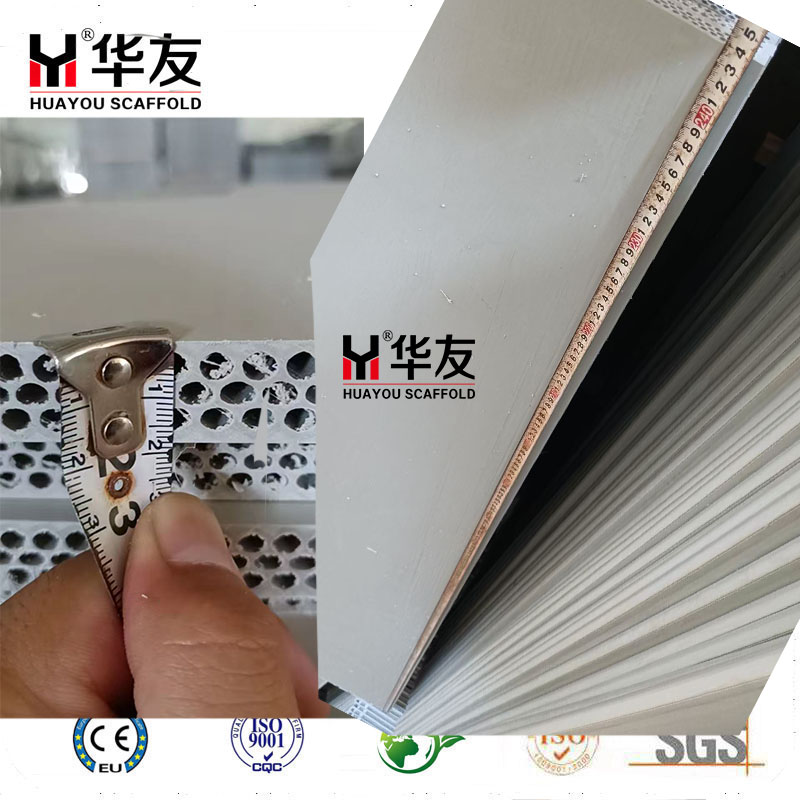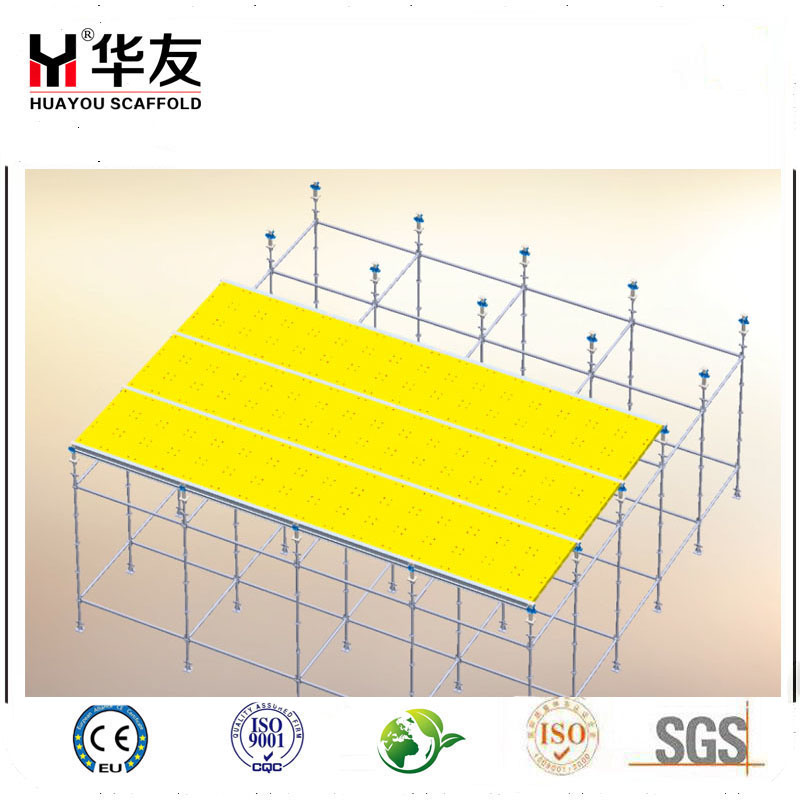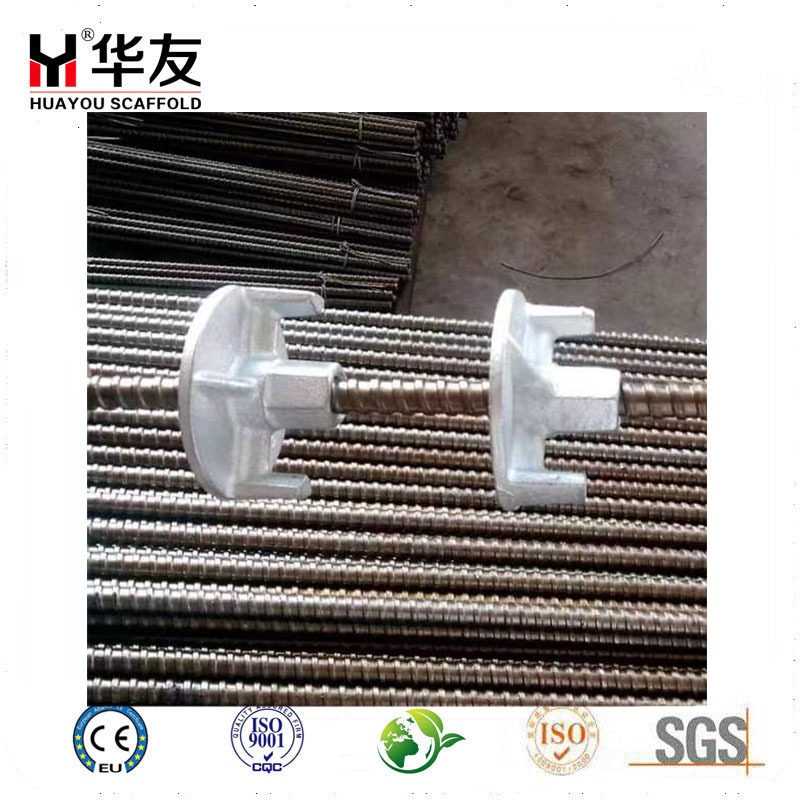Plastic Formwork Simplifies The Construction Process
Product Introduction
Unlike traditional plywood or steel formwork, our plastic formwork has superior rigidity and load-bearing capacity, making it ideal for all types of construction projects. And, because it is significantly lighter than steel formwork, our formwork is not only easier to handle, but also reduces transportation costs and on-site labor.
Our plastic formwork is designed to withstand the rigors of the construction environment while providing a reliable and efficient solution for the forming of concrete structures. Its durability and reusability make it a cost-effective choice for contractors seeking to optimize resources. In addition, the lightweight nature of our formwork enables it to be assembled and disassembled more quickly, ultimately speeding up project schedules.
We are committed to quality products and customer satisfaction, and we are confident that our plastic formwork will meet or exceed your expectations.
PP Formwork Introduction:
| Size(mm) | Thickness(mm) | Weight kg/pc | Qty pcs/20ft | Qty pcs/40ft |
| 1220x2440 | 12 | 23 | 560 | 1200 |
| 1220x2440 | 15 | 26 | 440 | 1050 |
| 1220x2440 | 18 | 31.5 | 400 | 870 |
| 1220x2440 | 21 | 34 | 380 | 800 |
| 1250x2500 | 21 | 36 | 324 | 750 |
| 500x2000 | 21 | 11.5 | 1078 | 2365 |
| 500x2500 | 21 | 14.5 | / | 1900 |
For Plastic Formwork, the max length is 3000mm, max thickness 20mm, max width 1250mm, if you have other requirements, please let me know, we will try our best to give you support, even customized products.
| Character | Hollow Plastic Formwork | Modular Plastic Formwork | PVC Plastic Formwork | Plywood Formwork | Metal Formwork |
| Wear resistance | Good | Good | Bad | Bad | Bad |
| Corrosion resistance | Good | Good | Bad | Bad | Bad |
| Tenacity | Good | Bad | Bad | Bad | Bad |
| Impact strength | High | Easy broken | Normal | Bad | Bad |
| Warp after used | No | No | Yes | Yes | No |
| Recycle | Yes | Yes | Yes | No | Yes |
| Bearing Capacity | High | Bad | Normal | Normal | Hard |
| Eco-friendly | Yes | Yes | Yes | No | No |
| Cost | Lower | Higher | High | Lower | High |
| Reusable times | Over 60 | Over 60 | 20-30 | 3-6 | 100 |
Product Advantage
One of the main advantages of plastic formwork is its superior stiffness and load-bearing capacity over plywood. This durability enables it to withstand the rigors of construction without deforming or aging over time.
In addition, plastic formwork is much lighter than steel formwork, making it easier to handle and transport on site. This weight advantage not only reduces labor costs, but also minimizes the risk of injury during installation.
In addition, plastic formwork is resistant to moisture and chemicals, which increases its lifespan and reduces maintenance costs. Its reusable nature also contributes to sustainability, as it can be used for multiple projects without frequent replacement. This environmentally friendly feature fits in with the growing demand for sustainable building practices.
Product Shortcoming
One significant drawback is that its initial cost can be higher than plywood. While the long-term savings from reusability and durability can offset this initial investment, budget-conscious projects may find it difficult to justify the upfront investment.
Additionally, plastic formwork may not be suitable for all types of construction, especially if resistance to high temperatures is required.
Product Effect
Plastic formwork stands out for its superior stiffness and load-bearing capacity, far exceeding that of plywood. This means it can withstand greater loads without compromising structural integrity, ensuring projects are completed on time and within budget.
In addition, plastic formwork is much lighter than steel formwork, making it easier to handle and transport. The reduced weight not only simplifies the installation process, but also reduces the number of workers required to manage the formwork, minimizing labor costs.
As the construction industry continues to seek more efficient and sustainable solutions, plastic formwork is becoming a key to change. Its combination of durability, lightness and ease of use makes it ideal for a wide range of applications. Whether you are working on a residential, commercial or industrial project, the advantages of plastic formwork can help you optimize the construction process and achieve excellent results.
FAQS
Q1:What is Plastic Formwork?
Plastic formwork is a construction system made of high-quality plastic material used to make molds for concrete structures. Unlike plywood or steel formwork, plastic formwork has superior hardness and load-bearing capacity, making it a reliable choice for a variety of construction applications. In addition, compared with steel formwork, plastic formwork is lightweight, which simplifies handling and installation, thereby reducing on-site labor costs and time.
Q2:Why choose plastic formwork instead of traditional formwork?
1. Durability: Plastic formwork is resistant to moisture, chemicals, and weather conditions, ensuring a long service life and reducing the need for frequent replacement.
2. Cost Effective: While the initial investment may be higher than plywood, the long-term savings from reduced labor and maintenance costs make plastic formwork a more economical choice.
3. Easy to Use: The lightweight design allows for easy transportation and installation, making it ideal for projects of all sizes.
4. Environmental impact: Many plastic formwork systems are made from recyclable materials, contributing to sustainable building practices.















